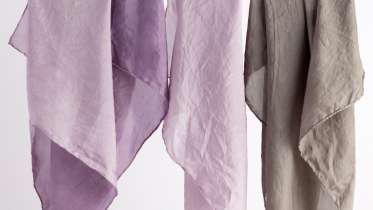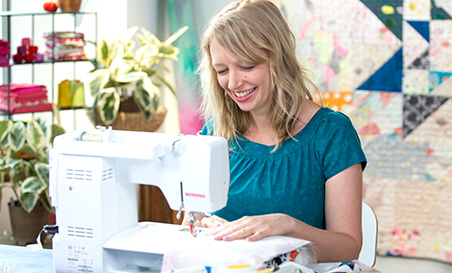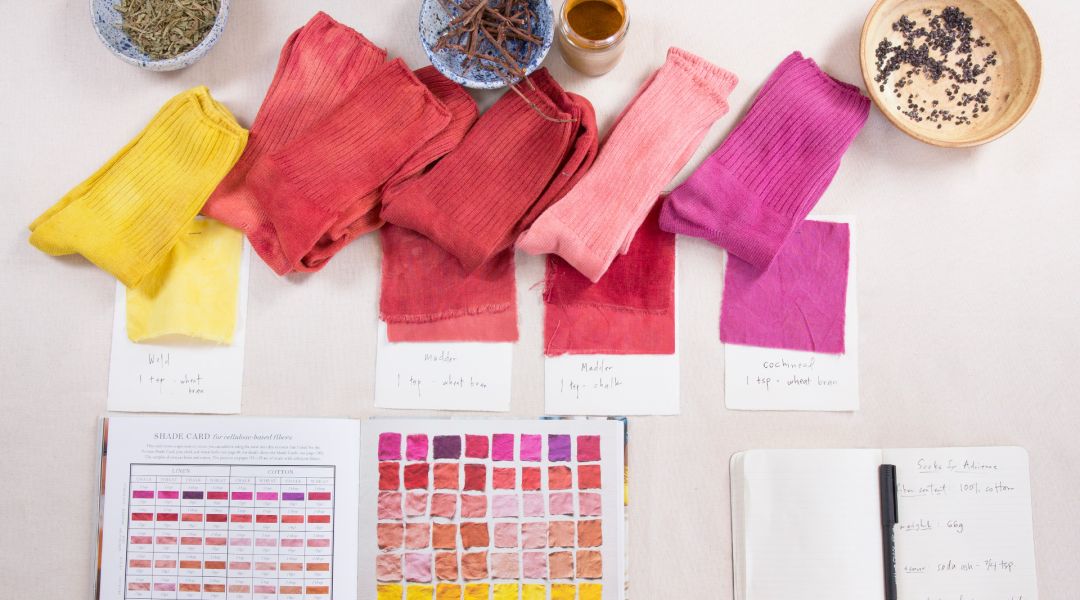
Beginner
|
15 min
|
00:39
|
|
01:24
|
|
02:19
|
|
01:57
|
|
02:06
|
|
02:42
|
|
02:11
|
|
01:42
|
Natural Fabric Dyeing
Part 1:
Natural Dyeing: How to Dye Silk Fabrics
Using natural plant extracts, learn to dye a beautiful silk scarf with Kristine Vejar. You will learn the ins and outs of working with silk and other protein fibers like wool, including how to prepare fabric for dyeing, and how to create desired colors and shades using natural extracts. Once you understand the basics of the process, you’ll have all the tools you need to experiment with natural dyes and protein fibers.
Part 2:
Natural Dyeing: How to Dye Cotton Fabrics
Learn the basics of dyeing cotton and other cellulose fibers—a process that is similar to dyeing protein fibers, but is just different enough to merit its own lesson. In this class, Kristine shares her passion for working with natural plant extracts to create beautiful shades of red using Madder. She shows you how to prepare cotton for dyeing and how to create a dye bath, sharing expert tips along the way. With this method, you can dye a single pair of socks or a whole pot for friends.
Learn the basics of dyeing cotton and other cellulose fibers—a process that is similar to dyeing protein fibers, but is just different enough to merit its own lesson. In this class, Kristine shares her passion for working with natural plant extracts to create beautiful shades of red using Madder. She shows you how to prepare cotton for dyeing and how to create a dye bath, sharing expert tips along the way. With this method, you can dye a single pair of socks or a whole pot for friends.
Learn how to:
Here’s what you’ll need:
- 100% Cotton socks for dyeing
- Sieve
- Wheat Bran – about 1 cup
- Soda Ash or “washing soda” for scour (can be found at the hardware store) -- 1 ¼ teaspoon soda ash scour per 100 grams material
- Natural dye -- about ½ teaspoon (Kristine uses Madder natural dye extract. All dyes available online, or at Kristine’s shop, http://www.averbforkeepingwarm.com)
- Scale
- Aluminum acetate – 2 teaspoons per 100 grams material (this is the mordant. Available online, or at Kristine’s shop, http://www.averbforkeepingwarm.com)
- Spoon or small whisk
- 3-5 quarts (2.8 - 4.7 Liter) stainless steel pot with lid
- Measuring spoons
- Liquid measuring cup
- Tongs
- Timer
- Thermometer
- Rubber gloves
- Silk and wool yardage
- Bucket
- Journal for recording dye process
- Apron
- Access to hot water and a stovetop (kitchen works well)
Downloads:
- Scour and mordant cotton goods for dyeing
- Record dye process in journal
- Create a wheat bath for cotton material
- Mix and match dyes to create custom colors
- Create a dye bath
- Dye cotton fabric
- Wash and rinse dyed goods
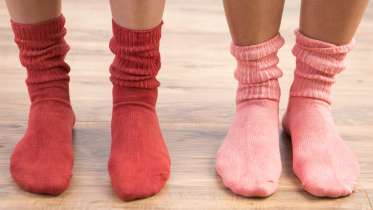



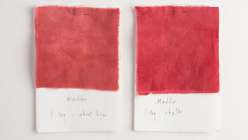
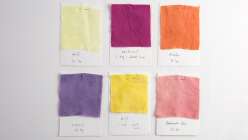
Member Gallery
Browse members' projects from this class and share your own work! Learn how to take great photos here.
Load More
Transcript
Class PDF
Natural Dyeing: How to Dye Cotton Fabrics Reviews
23 users recommended this class to a friend
Ginger Carrle
I love her work! I am definitely going to try this. I'm also going to look into dye gardens - it sounds so fascinating!
More than 3 months ago




